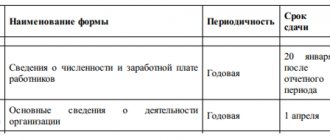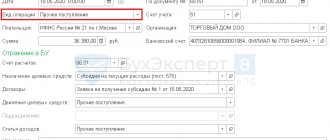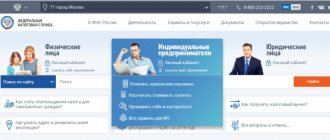What legislation applies
Russian tax legislation will be applied in the territories of the Republic of Crimea and the city of Sevastopol from January 1, 2015. Until this point, tax legal relations are regulated by the regulatory legal acts of Crimea and Sevastopol (Part 2 of Article 15 of the Federal Constitutional Law of March 21, 2014 No. 6-FKZ). These are the following documents:
- Regulations on the specifics of applying legislation on taxes and fees on the territory of the Republic of Crimea during the transition period (approved by Resolution of the State Council of the Republic of Crimea dated April 11, 2014 No. 2010-6/14);
- Law of the city of Sevastopol dated April 18, 2014 No. 2-ZS “On the specifics of applying legislation on taxes and fees in the territory of the federal city of Sevastopol during the transition period.”
Such clarifications were provided by the Federal Tax Service of Russia in a letter dated April 4, 2014 No. GD-4-3/6133.
Justification of the effectiveness of business taxation regimes in Crimea
It is not possible to say definitively which mode is most effective. There is no universal way to calculate this, which is due to several factors:
- Incomparability of tax calculation bases. For example, the amount of UTII will not depend on financial performance.
- The need for assumptions about the cost structure. The benefits of various modes will be directly determined by the profitability of the activity. If we conditionally divide the types of activities, classifying production, trade, and agriculture into one category, and the provision of services and rent into the second, then when analyzing the simplified tax system, the second option, taking into account higher profits, will be shown separately.
- The amount of social contributions from wages plays an important role, determining the final amount of the tax, and, accordingly, influencing the overall tax burden. The general rate of social contributions for calculations is considered to be 30%.
Due to the unavailability of a patent and the unfavorable conditions of the OSNO special regime, small businesses will need to choose between UTII and the simplified tax system. If the company has an excess amount of revenue, no choice is made - the entrepreneur works on UTII terms by default. At the same time, the activity of an enterprise on UTII is impossible with a greater tax burden than would be the case under OSNO conditions. As a result, small businesses whose turnover does not exceed 64.02 million rubles (2014 prices) can choose between UTII and simplified taxation system - this depends on the efficiency of their activities. But companies whose turnover is more than 64.02 million rubles are required to exercise strict control so that their tax obligations under UTII are no higher than under OSNO.
If the farm is a seller
Russian companies selling goods to Crimean counterparties must take into account that now the territories of Crimea and Sevastopol belong to the regions of the Russian Federation.
That is, the sale of goods (work, services) to Crimean (Sevastopol) buyers is a regular sale, taxed at rates of 18 (10) percent (letter of the Ministry of Finance of Russia dated April 16, 2014 No. 03-07-13/1/17316). In other words, sellers do not have the right to apply a zero rate, as when exporting goods (works, services). At the same time, Crimean companies can accept “input” VAT for deduction - clause 9 of the Regulations on the specifics of applying legislation on taxes and fees in the territory of the Republic of Crimea during the transition period.
Services for the transportation (transportation) of goods provided by Russian organizations within the territory of the Russian Federation (including Crimea and Sevastopol) are subject to VAT at a rate of 18 percent. This rule also applies to services paid before March 18, 2014, but provided later than this date (letter of the Ministry of Finance of Russia dated May 12, 2014 No. 03-07-13/1/22154).
Rights without responsibilities
Olga Petrovna, what changes have been made to the legislation?
Olga Pervashova
: Initially, the law on the activities of SEZs was somewhat vague about the procedure for providing benefits, as a result we had misunderstandings with payers. We believed that if a project to modernize one store is registered in the FEZ, and the investor has 15 of them, then he should receive benefits for only one. Some residents thought differently: one facility was modernized, but benefits were received for all 15, since the law did not contain the wording “investment project” within the SEZ, but “activity.” Now this norm has been clarified, that is, if a project in a FEZ includes one store, then the investor will receive benefits only for it.
— If an investor has submitted to the SEZ, for example, a project for the reconstruction of one of the workshops, which does not produce finished products, but is part of the production chain. How will he keep separate records?
Olga Pervashova:
The investment project does not involve any kind of production cycle. If, for example, it talks about the reconstruction of one workshop out of five operating ones, then what does it have to do with the production cycle of the enterprise? Mediocre. But we have no objection in principle to an investor applying a reduced income tax rate to one-fifth of the income received. We are against the preferential rate being applied to all profits. What does the production of carbonated drinks have to do with an investment project to modernize, for example, a brewery (purchase of a beer bottling plant)? None. Accordingly, a preferential rate will be levied on profits received from the sale of beer, and not from the sale of lemonade. If an enterprise has one type of product, then we are ready to work with the taxpayer in each specific case and even accept the option that he chooses for himself.
How will tax accounting be ensured for enterprises with a single production cycle, for example, in construction?
Olga Pervashova:
In each specific case, separate accounting will be specific; there are no manuals that cover all cases: no matter what field of activity you take, each has its own characteristics. Both farmers and builders have their own production cycles. With the latter, it’s simple: during the construction of a facility, they only have expenses, and accordingly, there are no benefits. They appear when the property is built, put into operation and sold. But the benefit will only be for a house, the construction of which was carried out within the framework of a free economic zone; all other objects will be subject to taxes on a general basis.
Will an investor be able to get benefits when producing concrete at his plant for the construction of a building?
Olga Pervashova:
In this case, the plant will not have final products (concrete) that are subject to taxation. That is, the businessman will not receive a preferential income tax, since all the concrete will be used up during the construction of the house and will not be sold.
Has the procedure for collecting contributions to insurance funds also undergone changes?
Olga Pervashova:
Previously, the law stated that a FEZ participant has the right to benefits when paying insurance premiums from the income of workers engaged in these types of activities. Now the preferential rate of social payments will apply only to the salaries of employees taking part in the implementation of the FEZ investment project. The staffing schedule for its implementation is agreed upon with the Ministry of Economy of Crimea when the investment project is approved, and benefits will be applied to these employees. This is a necessary measure, because we have repeatedly encountered the fact that the investor does not make capital investments, but receives benefits for social payments, and for all employees of the enterprise. Thanks to this, he saves a certain amount and only after a couple of years begins to invest, or even closes production altogether. Now, upon liquidation of the enterprise, he will have to return all the money received in the form of benefits.
How many residents will the innovations affect?
Olga Pervashova:
Most of the bona fide FEZ residents immediately applied the benefits correctly. And nothing will change for them. And those who believed that the SEZ was a loophole for obtaining preferences will no longer be able to use it. Not only did they not keep separate records, but in principle they did not make any capital investments. And, unfortunately, there are about 15 - 20 percent of them. Thanks to precise wording, we will be able to ensure the rights of taxpayers and require them to fulfill their obligations. At the same time, we would like to be understood correctly: we are not enemies of real manufacturers. But not everyone in the FEZ is like that. Moreover, about a third of residents believed that they should have benefits for everything just because they are residents, but the implementation of the project can wait. That is, they have rights, but responsibilities - as it turns out. We understand that there are objective reasons when the start of a project is delayed, for example, due to difficulties with land registration or technical connection to networks. In this case, you do not need to leave the SEZ, but you should not request benefits either.
Residents accuse the tax service of changing the rules during the work process.
Olga Pervashova:
All working conditions in the FEZ remained the same: it is necessary, in accordance with the agreement on work in the FEZ, which was concluded with the Ministry of Economy of the Republic of Kazakhstan, to fulfill all obligations on capital investments and ensure separate tax accounting for this investment project and general activities. There is a normal process of concretizing concepts and closing gaps in the law. We have seen them since 2015 and talked about it at the regional Ministry of Economy. But the Federal Tax Service and the ministry have slightly different tasks: the latter’s priority is to attract as many participants as possible to the FEZ, for us it is to guard the budget. In 2021, the budget received a shortfall of two billion rubles due to the benefits provided, in 2017 - seven billion, the forecast for this year is 10 billion. Everyone expected that preferences for some taxes would increase revenue for others. But this happened in 2017 only for personal income tax, and only for one billion rubles - only 20 percent of almost 1,300 residents provided it. These are large projects implemented under the Federal Target Program. Other investors either have no increase in taxes, or there is a decrease in personal income tax. That is, for them, the SEZ has become a legally permitted loophole for saving on taxes.
Is there no growth at all for other taxes?
Olga Pervashova:
Individual payers recorded an increase in VAT deductions. But not because of an increase in production, but because of an increase in the price of final products. Starting next year, growth will be ensured by a rate increase. The SEZ has been operating for three years, during which the main investments were expected. But there are a lot of residents whose activities do not involve large investments at all: these are the service sector, small trade and pawn shops. Why are they in the FEZ? Well, a trading company purchased equipment once, and will receive benefits for 25 years. What is the benefit here for Crimea?
Approximately a quarter of FEZ residents are small businesses that already operate under a special tax regime. About a quarter of residents do not yet carry out any activity at all. And only 3 - 5 percent of investment projects have a declared capital investment amount of about 100 million rubles, the rest - about three million rubles. Investments are minimal, and budget losses in the form of lost taxes are huge. At the same time, a certain amount of budget revenue must be ensured. So far, the expenditure part of it is growing safely, and the revenue part is declining. We are forced to close the gap using revenues from non-residents of the FEZ. It is unfair that they bear an additional tax burden due to preferences for FEZ participants. The rules should be the same for everyone. Therefore, we are pleased with the changes in the legislative framework and hope that taxpayers will put aside their emotions and see justice in them.
Taxation of LLC in Crimea 2020
The current declaration form in form CN 23 can be found here: It is worth considering that when sending parcels to other countries by mail, in accordance with No. 350-FZ, organizations do not need a foreign trade contract to confirm the zero VAT rate. VAT 0% for airport services in 2021 In 2020, the list of services exempt from VAT provided by airports is determined by a document issued by the Russian government. This follows from Law No. 305-FZ (dated October 30, 2020), which amends the Tax Code (subclause 22 of clause 2 of Article 149). A new subclause 4.2 of clause 1 of Article 164 of the Tax Code of the Russian Federation on the basis of No. 353-FZ of November 27, 2021, from 01/01/2020, introduces 0% VAT in the Kaliningrad region in relation to domestic air transportation of passengers (including baggage).
Taxation of legal entities registered in the Republic of Crimea in 2021
- Tax changes in 2021
- Taxes for LLCs in 2021
- LLC taxation in 2021
- Income tax rates 2020
- Basic rate – 20%
Termination of the contract of a FEZ participant voluntarily and forcibly
Losing the status of a FEZ participant is possible for a number of reasons – not only when the contractual terms expire. In addition, the contract may be terminated by agreement of the parties or due to the termination of the company's activities.
Also, if certain violations were revealed during inspections, the participant may be forcibly deprived of his rights - through the courts and on the basis of provided evidence of violation of the terms of the contract. The executive authorities of Crimea and Sevastopol may demand termination of the contract through the court in cases where:
- Indication of incorrect information - underestimation of the size of capital investments with a clear difference from the figures specified in the contract, or unreasonable changes in the schedule of annual investments in the first 3 years;
- Changes in the focus of the investment project;
- Carrying out business activities on the territory of the zone that were not provided for by this agreement;
- Other violations of contractual terms for the implementation of the established investment declaration.
If this agreement is terminated due to a court decision, the FEZ participant is excluded from the unified register. Disputed issues are considered by the Arbitration Court of Sevastopol or the Arbitration Court of Crimea.
Taking into account Article 41 of Part One of the Arbitration Procedural Code, a participant in a free economic zone has the right to present its arguments in the process of considering controversial issues. He can present any evidence, try to defend his position, appeal court decisions and acts.
Recommendations for choosing a tax regime for small businesses in Crimea
To make 2021 a productive year for small businesses, the following activities must be completed:
- Conducting an analysis of the financial benefits of a particular taxation system using the results of nine months of 2019.
- If you are just starting your business, or high profitability is not planned, or there is instability, then the most profitable option would be to choose a flexible simplified tax system.
- Remember that UTII will never give you guarantees that the tax burden will be minimal.
- If your business activity is properly organized and shows high profitability, then choose UTII. You get the following: all increases in excess of the income imputed by the Tax Code of the Russian Federation will not be taxed.
- If you carry out activities on UTII, then you should register the simplified tax system as the use of this taxation system for use in other types of activities.
- It is recommended to control the dynamics of the deflator coefficient according to the Unified Tax Code and the simplified tax system, and it is mandatory to take it into account in the calculation process.
- It is necessary to monitor innovations in the tax system, as they may affect the amount of the tax burden. These include: - replacing property tax with real estate tax; — the possibility of obtaining additional preferential conditions for Crimean taxpayers; — introduction of a sales tax; — loss of property tax benefits for small businesses.
Previous post How to celebrate the New Year in Crimea 2021: hotels and prices
Next entry How to become a participant in the FEZ in Crimea, is the Crimean free economic zone an offshore?








